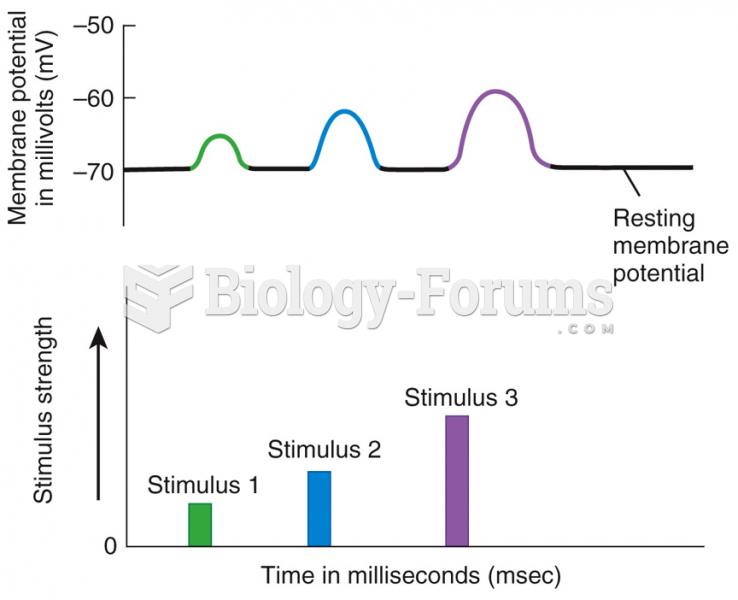|
|
|
Eating carrots will improve your eyesight. Carrots are high in vitamin A (retinol), which is essential for good vision. It can also be found in milk, cheese, egg yolks, and liver.
After a vasectomy, it takes about 12 ejaculations to clear out sperm that were already beyond the blocked area.
Drying your hands with a paper towel will reduce the bacterial count on your hands by 45–60%.
Many people have small pouches in their colons that bulge outward through weak spots. Each pouch is called a diverticulum. About 10% of Americans older than age 40 years have diverticulosis, which, when the pouches become infected or inflamed, is called diverticulitis. The main cause of diverticular disease is a low-fiber diet.
The people with the highest levels of LDL are Mexican American males and non-Hispanic black females.







